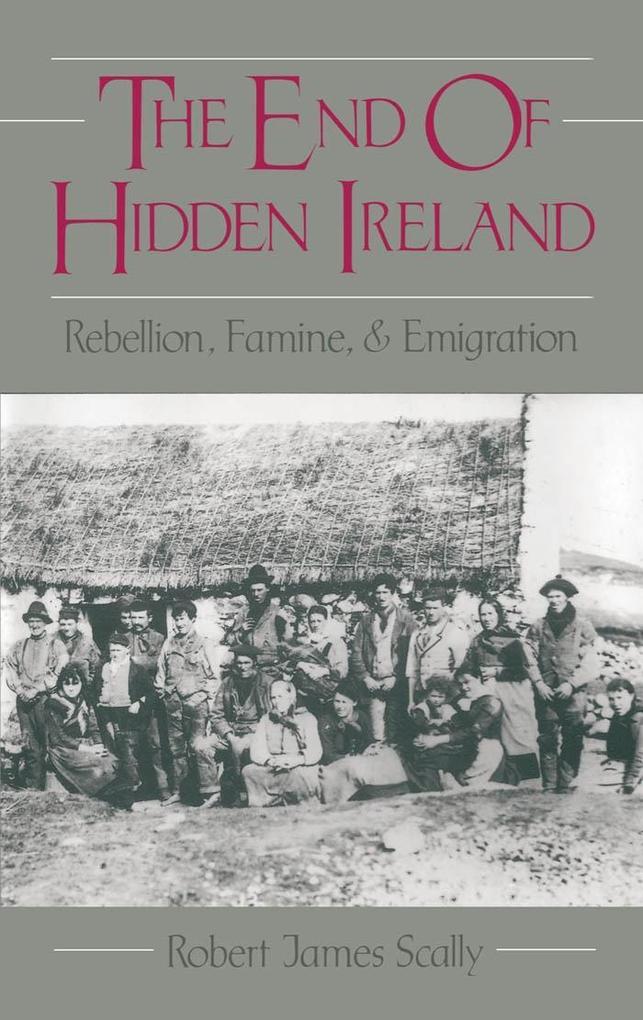
Sofort lieferbar (Download)
Many thousands of Irish peasants fled from the country in the terrible famine winter of 1847-48, following the road to the ports and the Liverpool ferries to make the dangerous passage across the Atlantic. The human toll of "Black '47," the worst year of the famine, is notorious, but the lives of the emigrants themselves have remained largely hidden, untold because of their previous obscurity and deep poverty. In The End of Hidden Ireland, Scally brings their lives to light. Focusing on the townland of Ballykilcline in Roscommon, Scally offers a richly detailed portrait of Irish rural life on the eve of the catastrophe. From their internal lives and values, to their violent conflict with the English Crown, from rent strikes to the potato blight, he takes the emigrants on each stage of their journey out of Ireland to New York. Along the way, he offers rare insights into the character and mentality of the immigrants as they arrived in America in their millions during the famine years. Hailed as a distinguished work of social history, this book also is a tale of adventure and human survival, one that does justice to a tragic generation with sympathy but without sentiment.
Produktdetails
Erscheinungsdatum
02. März 1995
Sprache
englisch
Dateigröße
2,23 MB
Autor/Autorin
Robert Scally
Verlag/Hersteller
Kopierschutz
mit Adobe-DRM-Kopierschutz
Produktart
EBOOK
Dateiformat
EPUB
ISBN
9780190281557
Entdecken Sie mehr
Bewertungen
0 Bewertungen
Es wurden noch keine Bewertungen abgegeben. Schreiben Sie die erste Bewertung zu "The End of Hidden Ireland" und helfen Sie damit anderen bei der Kaufentscheidung.









